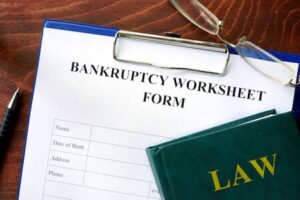
Filing for bankruptcy is a huge decision. It’s also one that will have an effect on your credit score and financial health for years to come. While most people who file for bankruptcy aim to never do so again, things happen, and you may experience another financial emergency at some point in your life. If you have previously filed for bankruptcy and are considering doing so again, here’s what you should know about how often filing for bankruptcy is allowed.
How Often Can You File for Bankruptcy?
You can actually file for bankruptcy as many times and as often as you’d like–there’s no penalty for doing so. However, the primary reason that debtors file for bankruptcy–to receive a discharge of their debts–cannot be pursued without limit. While you may be able to file for bankruptcy as often as you’d like, you can only receive a discharge of your debts after a certain amount of time has passed between your last discharge.
For a free legal consultation, call (419) 930-3030
What You Should Know About Bankruptcy Discharges
The amount of time that must pass between one bankruptcy discharge and another depends on the type of bankruptcy for which you’re filing and the type of bankruptcy for which you filed previously. For example…
If you’re filing for a Chapter 13 bankruptcy and you previously filed for a Chapter 7 bankruptcy, you will need to wait four years from the time that your debt was originally discharged until your current debts can be discharged. If you’re filing for Chapter 7 bankruptcy and previously filed for Chapter 13 bankruptcy, you’ll need to wait six years between discharges. Chapter 7 to Chapter 7 is an eight-year wait time, and Chapter 13 to Chapter 13 is only two years.
Personal Injury Lawyer Near Me (419) 930-3030
I Need Debt Relief Now–What Should I Do?
For many people who are drowning in debt, the idea of having to wait another year, let alone another two, four, or six years, to file for bankruptcy and receive a discharge of their debts can be terrifying. If you need debt relief now, it’s best to talk to an attorney or a financial professional who can review your options and provide you with qualified advice. While you may not be able to file for bankruptcy and receive a discharge as often as you’d like, other options include:
- Consolidating your debt;
- Working out a payment plan with creditors;
- Refinancing your mortgage;
- Modifying your loan terms;
- Creating a financial plan;
- Liquidating assets to pay creditors; and
- More.
Our Attorneys Can Help
At the law office of Groth & Associates, we understand that debt is more than burdensome–it’s terrifying. If you are thinking about filing for bankruptcy but have already filed for bankruptcy in the past, it’s smart to talk to an attorney to discuss your options. To schedule a free consultation with our experienced bankruptcy lawyers, please send us a message using the intake form on our website or call us directly. Our law firm is here to provide you with sound legal advice and representation.
Call or text (419) 930-3030 or complete a Free Case Evaluation form


